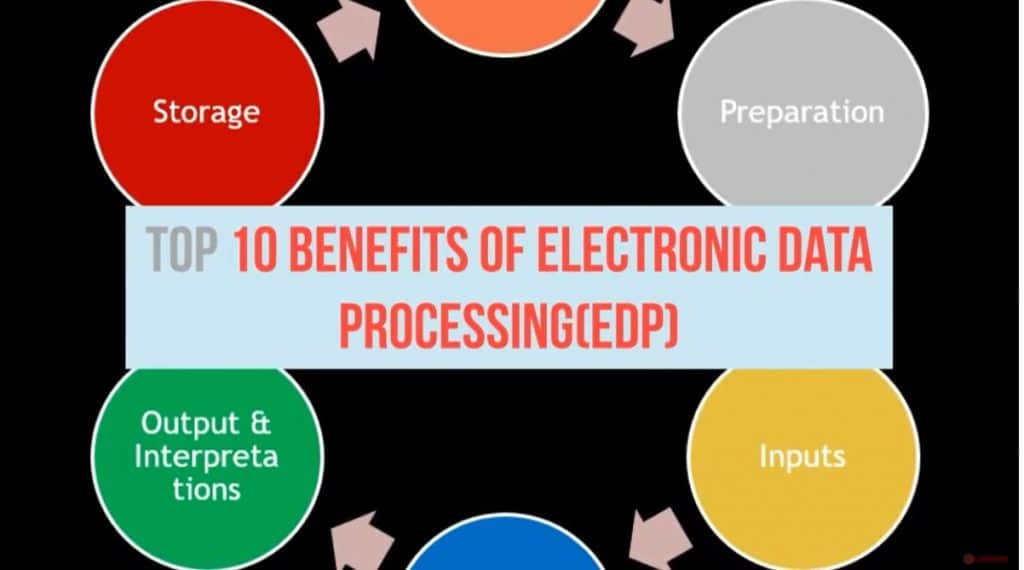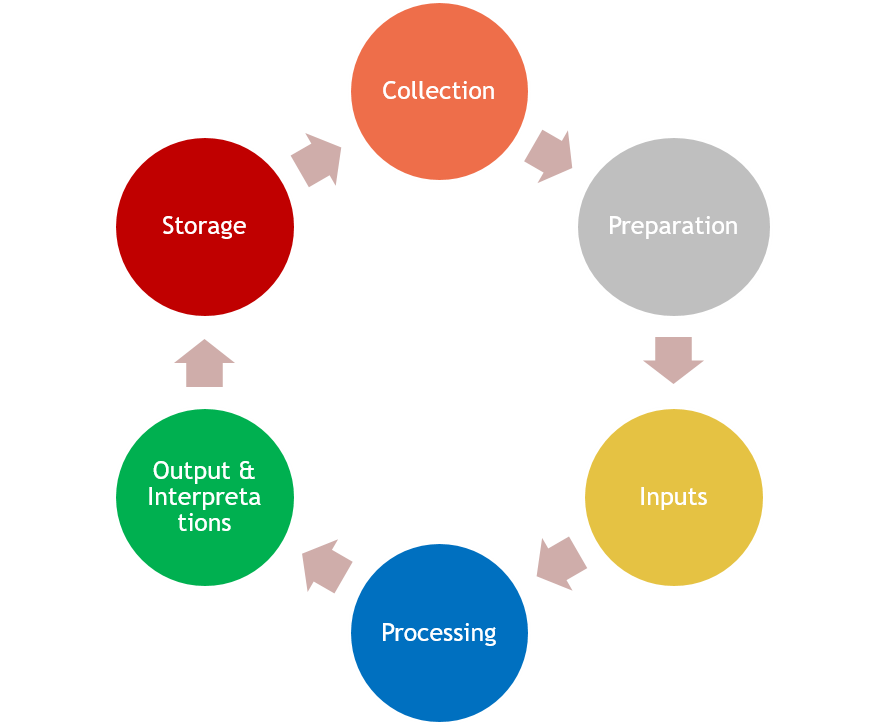Data – An immense amount of information is gathering every day. However, it is easy to understand how the information technology we use today has immensely changed the processes of many industries.
One of them is Electronic Data processing or EDP. As per the National Institutes, EDP is “the computer-to-computer exchange of rigidly formatted messages that represent documents other than monetary instruments.”
However, no matter the size of an organization the Data vary from unstructured to the structured manner, often uncollected. Therefore, you can manage all set of data using an appropriate approach to Electronic Data processing.
Before checking the details of Electonic Data Processing (EDP), lets first check-
Jump to Section
What is Data Processing?
Generally, Data Processing is the collection and conversion of a set of information to a meaningful outcome. The facts which can be processed to generate the significant result is called Data processing.
The Data processing system is a composition of devices, resources, and procedure which you can use for a set of inputs in order to produce a set of outputs.
So we can explain all inputs and outputs as data, facts, and pieces of information.
Data processing involves many steps as below
- Collection and Validation- To make sure the provided Data is accurate.
- Preparation and sorting- Formatting Data according to the use.
- Inputs and Summarization- Checking the data to categories useful information.
- Processing and Aggregations- Calculating data for processes.
- Analytics- Interpretation, and presentation.
- Reporting and Storage- Summary data for various uses.
There are several methods of Data Processing available as follows
- Manual Data processing.
- Automatics Data processing.
- Electronic Data processing.
Furthermore, the best and most useful processing method is Electronic Data Processing which is the computerized presentation of facts and raw data. Electronic data processing (EDP ) reflects the processes of the automated path to convert data. Processing methods are simple and easy to adapt.
Electronic Data Processing
Electronic information handling or EDP is a quick, secure and hassle-free information preparing framework that can produce any kind of information.
Does your association gather and deal with each little piece of data which you create each day or only a set of information?
Regardless of whether your organization is little or huge or whether your information handling needs are gigantic or less. You can profit from an Electronic Data Processing or EDP framework. EDP alludes to an advanced administration of your database. You can gather any kind of information like solicitations, telephone discussions, archives or minutes of a meeting through a successful EDP methodology.
Therefore, Electronic Data processing is the best in an industry to process information and data sets. EDP is the preparing of information by a computer and its projects in a situation including electronic correspondence.
Top 10 benefits of Electronic Data Processing
Following are the Top 10 benefits of Data Processing
1- Effective Version control
How regularly have you thought about whether you are dealing with the most recent variant of an archive? Having the capacity to return so as to comprehend changes is additionally close inconceivable without manual forming devices. An EDP has worked in rendition control which enables you to naturally form reports and guarantee that full archive history is accessible. As everybody is chipping away at a similar single record inside the EDP, issues related to numerous duplicates of reports disperse, as does the need to convey duplicates by means of email.
2- Smooth Collaboration
Collaboration among various vendors within life science is becoming more complex as we outsource more operations and development partnerships become more commonplace. EDP has the advantage to improve collaboration both internally and externally via the use of web-based workflows.
3- Better Timelines
Timeliness in development is supreme both for regulatory and time to market reasons. EDP provides us with tools to drive document management processes and push documents automatically via an electronic medium. EDP also speed up the complete structure to make sure timely generation of documents and records. This helps into improved and better inspection and submissions.
4- With EDP no Emails
An email is an amazing tool which has changed the way we work, however, most of us spend our working day managing information and content in email. Sometimes, Email is unstructured and hard to manage and often creates security and storage issues. Electronic data processing systems remove the need to view content via email, removes the security and overdue storage with improving control over regulated content.
5- Security and control
We need proper security and control when data is extremely sensitive. However, collecting information via papers is extremely challenging. EDP can help us with the use of audit trails, traceable and better security controls. Documents are our primary assets and protecting/managing these should be top priority.
6- Authentic backups
If you are not aware of the content you have, it becomes difficult to make sure that you have the accurate backup of the content. We save the document on local computers this means, we don’t have the proper backup of the content. We often had a chance to lose information or content., EDP concentrated all documents and records and forced the creation and management of these records in one location, this in turn seriously improves our ability to back up all content and ensure to follow the same practice.
7- Cost-effective
Paperwork or document management is very expensive, given the long record control requirements for regulated content in the Information Technology. We can easily manage to process, store and implement records when moving to electronic environments. Therefore, EDP reduces all cost for paperwork and makes it easy for all vendors to save their cost in the unnecessary documentation.
8- Better management
With the help of EDP, you can easily search for any document or information you have stored in your systems. Being able to easily find data and knowledge from stored content allows us to improve decision making. Also, it reduces the amount of time lost or we spent looking for information.
9- Compliance
An Electronic Data Processing provides us with all of the documentation/technical controls such as audit trails, backups, management, cost efficiency and security to be compliant. In addition, the use of workflows and document lifecycle management can also help with compliance.
10- Reliable content
An EDP provides us with controlled management and distributed responsibility and document revision management. It can also automate the PDF publishing process to ensure that all content is published in a uniform manner. Content is saved and retrieved for usage in a managed approach.
Electronic Data Processing Processes
This is a very simple three-step process
1- The Input Stage- This is the first step in the process. First of all, data or information is gathered from various source like keyboard, workflows, excel sheets etc. Sometimes Desktops, server or terminals are also considered to enter the data.
2- The Processing Stage- In this step, the data is automatically operated to capture a code application, translation or encryption. This stage is the main core of the process in which action takes place to generate the desired outcome.
3- The Output Stage- This is the final step of the structure. The processed data is converted to a report, document or product in the modified form.
So to conclude, EDP is the widely used and best approach for Data processing. They are also the most used protocols in the B2B world. Therefore, if you are not using EDP as of now start using today and experience the amazing benefits.
Hope this article will benefit all who are still stuck on paper works and looking for a process that can actually save a lot of time and cost.
- Business Intelligence Vs Data Analytics: What’s the Difference? - December 10, 2020
- Effective Ways Data Analytics Helps Improve Business Growth - July 28, 2020
- How the Automotive Industry is Benefitting From Web Scraping - July 23, 2020





